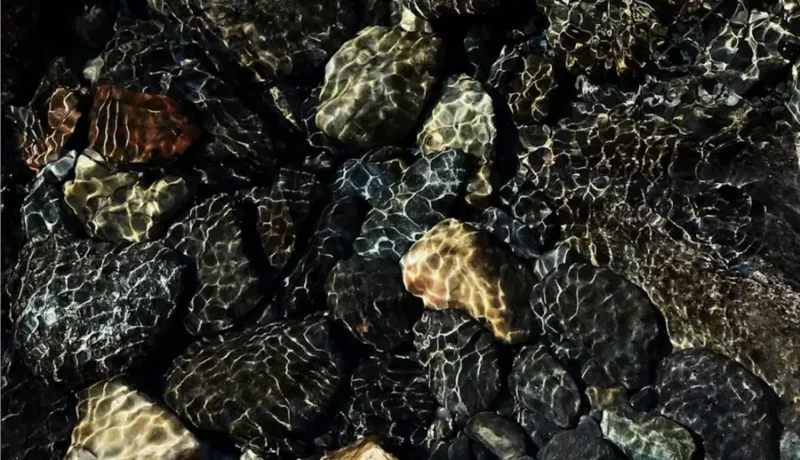For Guernica’s January and February 2025 issues, guest editors Salar Abdoh, Valeria Luiselli, Heather Cleary, Nimmi Gowrinathan, Maaza Mengiste, Kamila Shamsie, Mirza Waheed, Jacqueline Woodson, Jamal Mahjoub, and Nathalie Handal have selected works of fiction, nonfiction, and poetry from writers and thinkers in their communities whom they felt it was important to shine a light on. Following the release of our January issue last month, we are honored and excited to share the second part of this vital work with our readers today.
In the February issue, Jacqueline Woodson presents JP Infante’s short story “Bagging Weight,” which follows a young man grappling with pervasive violence and a complex web of family dynamics in Washington Heights. Kamila Shamsie presents Osman Samiuddin’s essay “Iggy,” in which the author seeks out a trace of Karachi’s golden age in the form of legendary guitarist Egan “Iggy” Fernandes. Mirza Waheed presents Samia Mehraj’s short story “Stained White Curtain,” which follows two sisters’ relationship as one of them becomes ill in Delhi. Nimmi Gowrinathan interviews Yara Hawari on the ways that language and imagery around Palestinian women shape narratives of violence. And finally, Nathalie Handal brings us Giovanni Quessep’s translated poems “When He Said His Name,” “Sleepwalker,” and “Being is Not a Fable,” which capture the solitude and daze of exile, as well as Samira Negrouche’s translated poems “Call,” “Requiem for my ancestor’s fig tree,” and “We planted a river,” which evoke the intimacies of memory and rootedness.
These pieces come to us from present-day New York and 1970s Karachi; from Kashmir, Palestine, Algeria, and Colombia. They are at times homesick, at times incensed, and at times drily funny. But, always, they couple each writer’s memorable voice with the subject matter’s own synchronous force, and in doing so, create that singular resonance that is literature’s province and preserve. We are incredibly grateful to our guest editors for bringing these talented writers into the literary home that Guernica has, for more than twenty years, provided for so many readers, including this one.
Welcome to the February issue!
–Youmna M. Chamieh, Editor-in-chief
—
“Bagging Weight”–
A sharp and dynamic story about a young man involved in a drug dealing operation in Washington Heights, who grapples with his volatile girlfriend, a web of family drama, police brutality, and pervasive corruption.
—
“Iggy” –
A riotous and full-hearted documentation of the author’s obsession with Egan “Iggy” Fernandes – a genius guitarist from 1970s Karachi – that explores themes of nostalgia, belonging, and how music can be intimately shaped by the politics of a place.
—
“Stained White Curtain” –
An atmospheric story that follows two sisters, one of whom falls ill in Delhi, exploring themes of family, illness, cultural identity, and the complexities of sisterhood against the backdrop of a bustling city and inner transformation.
—
“Beyond the Headlines: A Conversation on Palestine, Gender, and the Power of Language” –
A conversation with Yara Hawari on how language shapes narratives of violence, the various dehumanizing depictions of Palestinian womanhood, and the “unchilding” of Palestinian children.
—
“When He Said His Name,” “Sleepwalker,” and “Being is Not a Fable” –
Three poems by Giovanni Quessep, one of the most important and innovative Colombian poets, and one of the eminent voices of the Levantine diaspora from Latin America. Translated from the Spanish by award-winning poet and writer Nathalie Handal.
—
“Call,” “Requiem for my ancestor’s fig tree,” and “We planted a river” –
Three poems by the Algerian poet Samira Negrouche, the critically acclaimed author of eleven poetry collections, several artists’ books and a collection of essays. Translated from the French by award-winning poet and writer Nathalie Handal.
